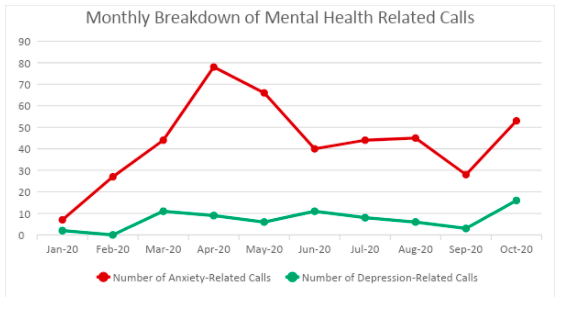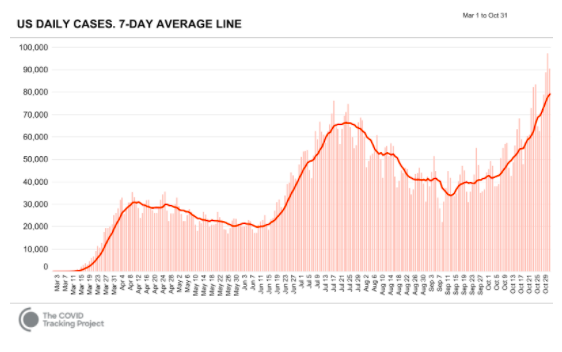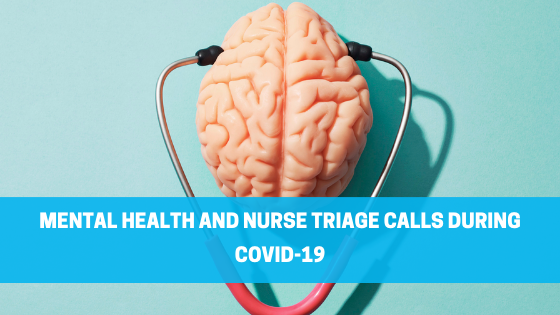The COVID-19 pandemic has had a huge impact on how we live our day to day lives. It has pulled people out of their daily routines, and forced people to limit their social interactions. With such big shifts in behavior, we are bound to see some implications. The data we’ve collected here at TriageLogic illustrates, at least in part, the challenge of caring for mental health during COVID-19.
According to the Kaiser Family Foundation, 53% of American adults estimated that the COVID pandemic had a negative effect on their mental health. We looked at data from our nurse triage service to understand how mental health may be related to COVID cases in the United States.
Triage nurses are trained to handle general mental health related calls. There are protocols in place for such cases to guide the nurses. Calls about mental health are relatively low compared to other symptoms. However, during the COVID pandemic, we saw spikes in the number of patients who called about mental health.
Figure 1 presents the number of calls about mental health that we received from January through October 2020. We include calls about both anxiety and depression. These patients who called the triage nurse line were not experiencing medical symptoms; they were calling only about mental health. Those who experienced anxiety or depression along with medical symptoms would have been categorized in the appropriate triage protocol. Figure 2 presents the total number of COVID cases in the US by month.
We find that in the beginning of the pandemic, there was a large spike in the number of mental health related calls we received. The triage nurses received about 10 times as many calls about anxiety in April compared to January 2020. After this initial surge, the number of mental health-related calls decreased, but remained elevated. We also find that anxiety increased with surges in the number of COVID cases in the US.
Our results show that mental health became an important health concern during the COVID-19 pandemic and that patients began to reach out to medical professionals for advice. One reason may be that the pandemic disrupted mental health services even as people began to experience more mental health concerns. Nurse triage also serves as a way for patients to reach out to providers. Patients may have also called the nurse triage service because they were anxious about COVID and seeking information or reassurance, even if they were not experiencing symptoms.
For more data about symptoms and outcomes of our nurse triage during COVID-19, check out our white paper, which contains information that can help you better understand patient behavior during a major health crisis. Download here.








